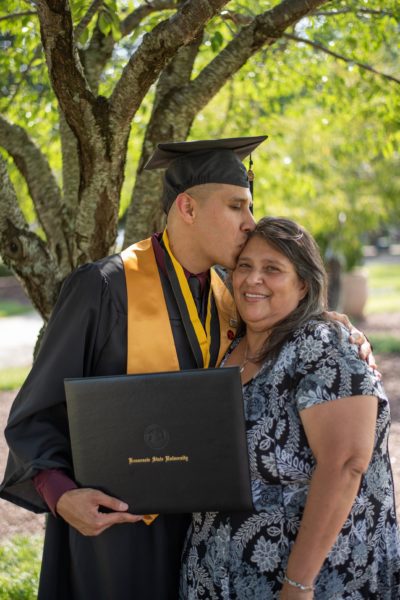
We are about to delve into a topic that can be a real hot-button issue for parents: sending your kids to college. It can be a sensitive subject for parents dreading having to deal with the silence, the absence, and the empty nest syndrome that arises when a child (who is no longer a child) branches out on his or her own to experience the “real world.”
College is the first experience many young people have with adult-level responsibility. How their parents prepare their kids ahead of time can have a significant impact on how positive or negative that experience ultimately is.
As a more good mom, your goal is likely to make the transition as smooth as possible. You want to give your child room to stretch and grow, but also be able to deal with some of the common challenges they will face without getting blindsided by them. With that in mind, we would like to offer some practical advice on how to make the transition to college as painless as possible for teens and young adults leaving the nest for the first time.
#1: Select the Best School
As a parent, it might be more agreeable to look at schools that are closer to home since doing so might facilitate more visits and less time between visits. Progressive parents understand that the decision is about much more than geography. With the cost of a college education already through the roof, it is crucial to choose a college or university for the right reasons.
This is why progressive parents always look at the bigger picture. They understand that location is not the most crucial detail. Where will my child be happiest? Which schools offer the best degree programs for his (or her) career goals? These are the types of questions to ask yourself and present to your college-aged child for consideration.
#2: Help Your Student Get Into His (or Her) Preferred School
Another practical consideration with school selection is ensuring admission to the student’s first choice school. Does your child struggle with writing assignments in high school? Did he or she not fare as well as you’d hoped on the essay portion of the SAT? If writing is an obstacle now, it’s time to get some help.
This assignment writer and essay development service can proofread, edit, and even write the student’s essay for his or her college application if needs be. It is a progressive solution to what could be a sticky and often inaccurate assessment of a student’s college readiness.
Most students need a computer, and if you are constrained by a budget, you can buy refurbished laptops and computers that cost just a fraction of the price of a brand-new unit. The key is to go to official refurbishing centers to get great deals on new and working computers for the lowest price they can go. Refurbished computers are guaranteed to work as expected because they went through numerous quality checks before being resold. All defective parts have been repaired or replaced.
#3: Visit Multiple Campuses
Before settling on even your child’s top pick, know what he or she is getting into. Some schools look great on paper, but the campus culture could be a hindrance to learning. Visiting campuses is a great way to assess the likelihood of your child’s success based on the overall atmosphere of the place. If any red flags emerge, open up a dialog with your child about how successful he or she is likely to be in an environment that seems more conducing to partying than learning.
This is also a great bonding opportunity so clear your weekend calendar and spend that time doing something positive for your child’s future. It is also a good idea to drive around the town and see what kind of element is present within the community. Will it be safe to walk the streets at night? Are the local businesses and residents friendly to the student body? These are legitimate questions that should be answered before settling on a school.
#4: Have A Frank Talk About College Life
So… how progressive a parent are you? Liberal enough to have the tough conversations about some of the dangers and temptations of campus life? Frank discussions about things like alcohol, drugs, relationships, and sex are necessary and should be handled with confidence and authority. Spend some of the time traveling to visit campuses to talk about these things. They are always more effective with a captive audience.
#5: Be Supportive and Available… But Don’t Hover
The most important and valuable lesson you can teach your child is that it is time to start dealing with things and making decisions independently. Let the decision about the school rest with the student. Let him or she learn a few lessons without providing a constant safety net.
Let certain mistakes happen. When they do, be there with practical advice and work together on solutions. This includes things like poor academic performance, homesickness, and bad decisions that revolve around money. Good, progressive parents recognize the value of learning hard lessons independently but are always there to lend support, advice, and encouragement when needed.

All of the above suggestions create a recipe for a smooth, successful transition to college life for teens and young adults. We hope that you will take the time to consider and implement as many of them as possible and make that transition one that is both positive and memorable for them.



